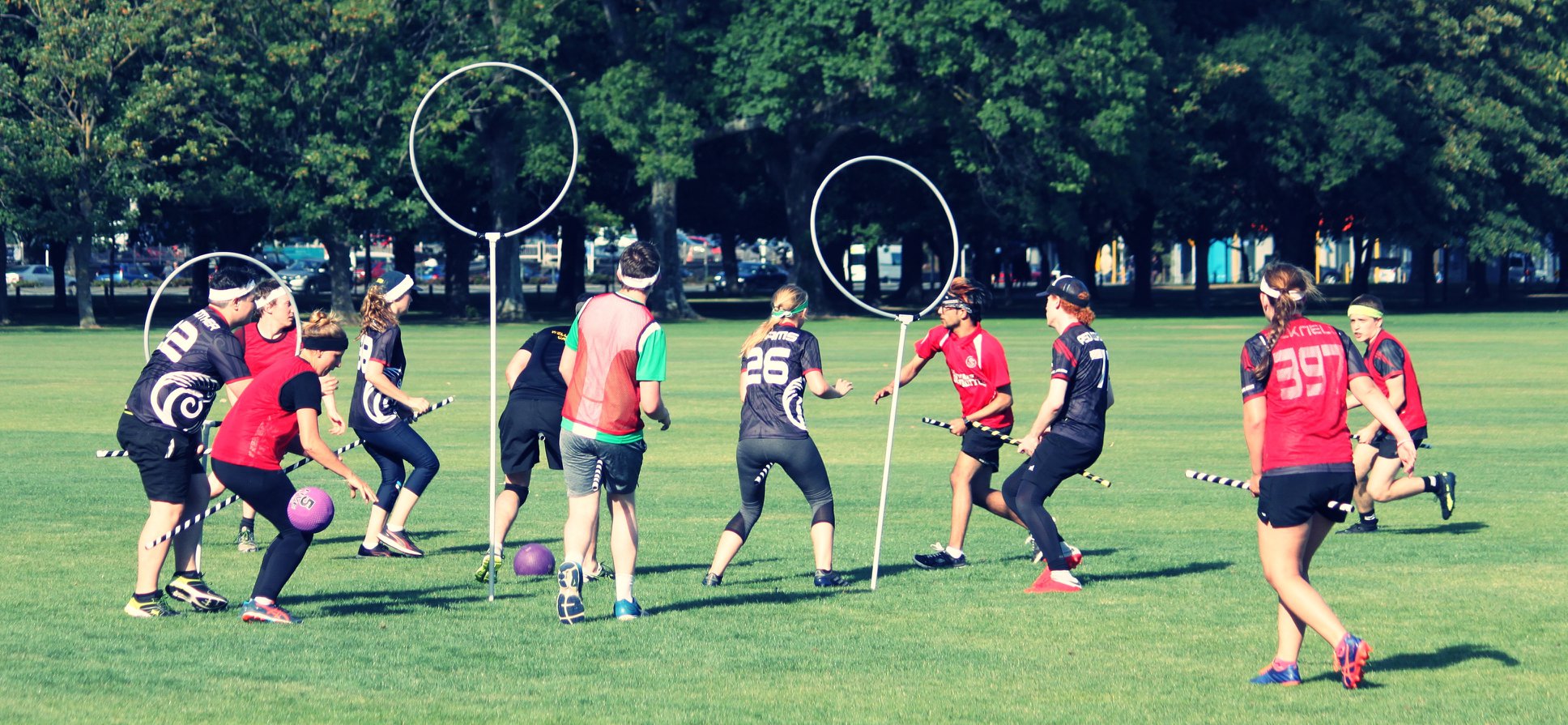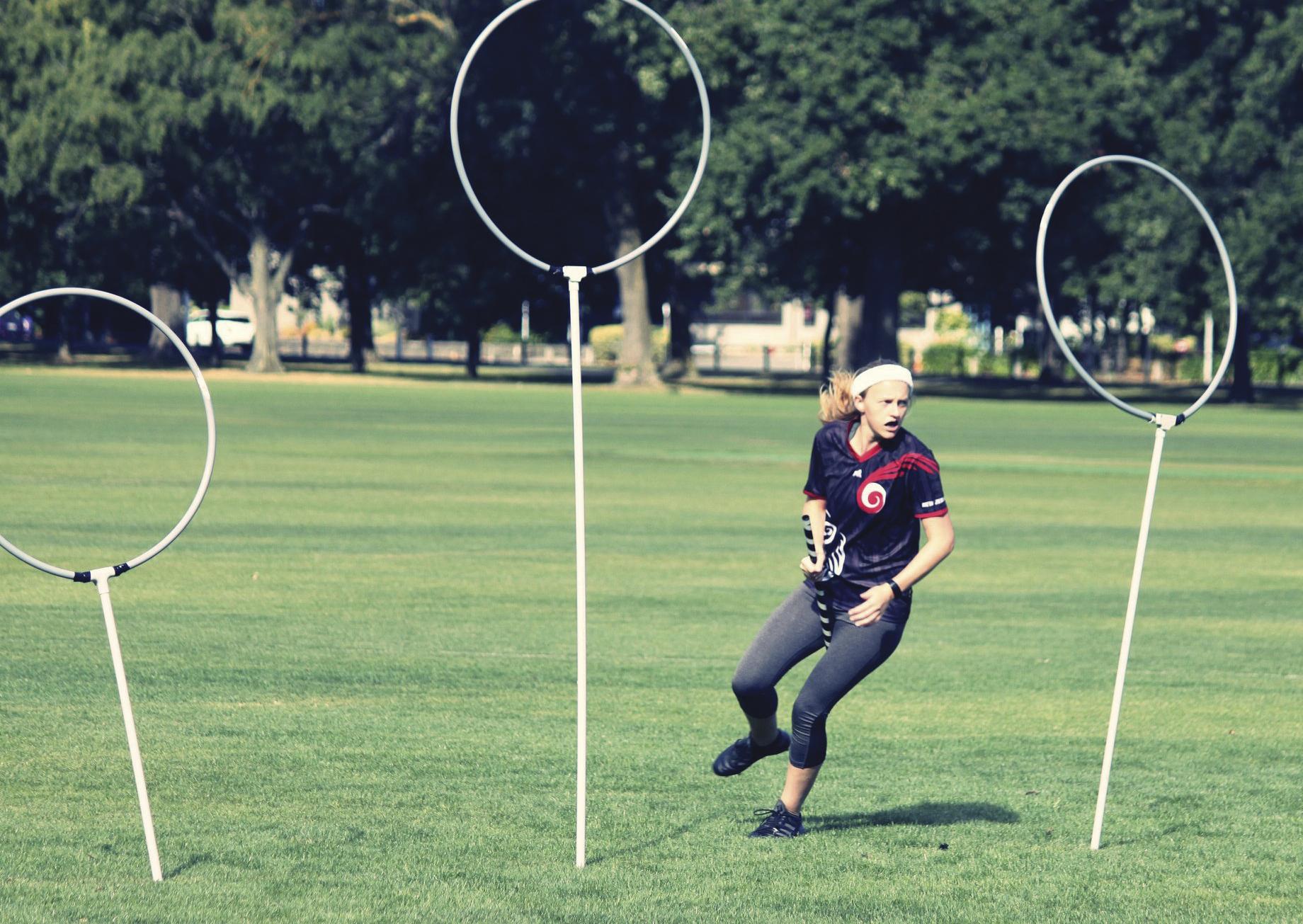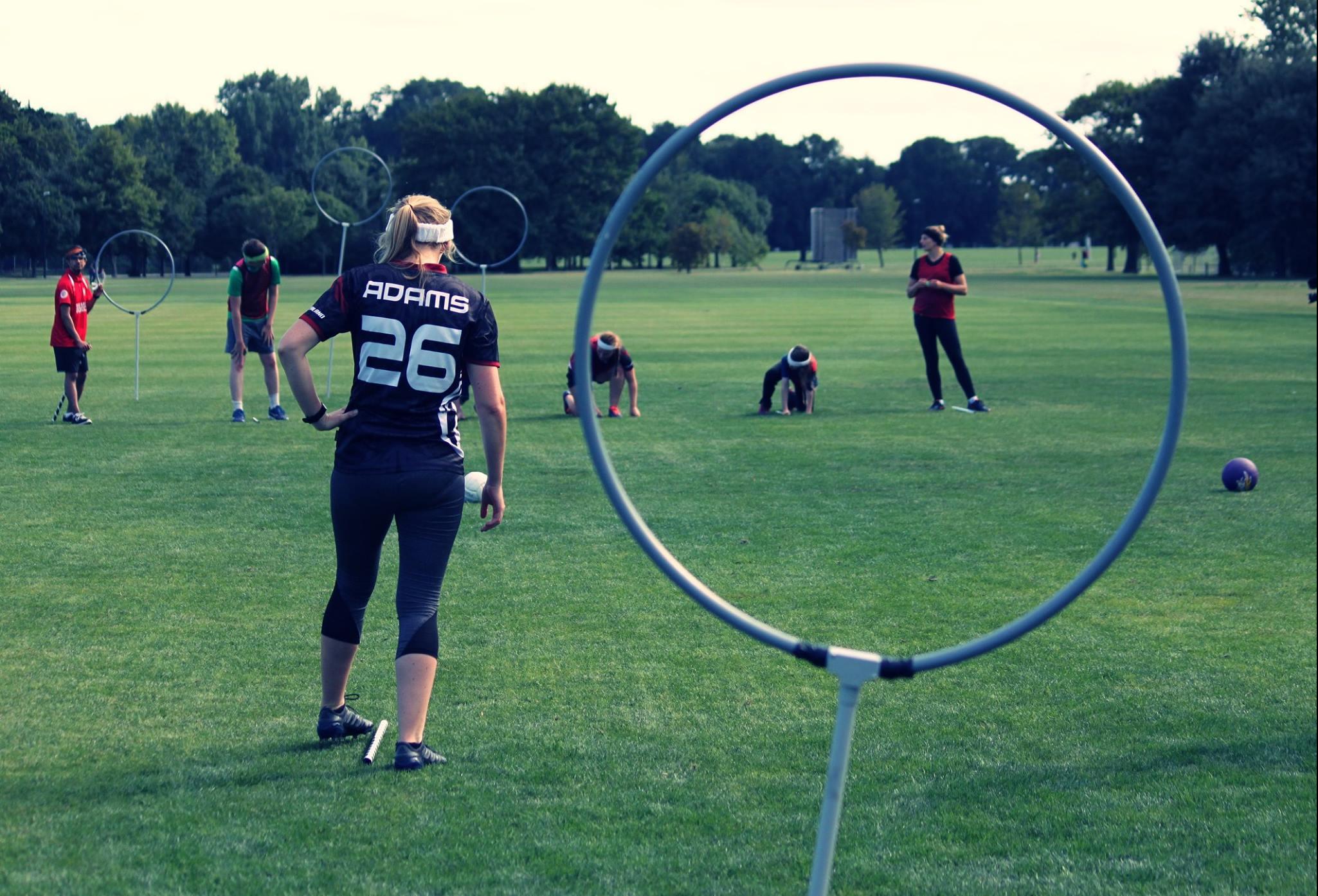Academic pharmacist Nataly Martini discusses the medical management of asthma in adults and adolescents, which has evolved to prioritise early anti-inflammatory treatment. She also explains how to improve patient outcomes by proactively identifying poor asthma control and supporting equitable access to education and treatment
That’s wizard: Auckland pharmacist flying high in muggle quidditch
That’s wizard: Auckland pharmacist flying high in muggle quidditch

Katie Adams is a pharmacist at Westview Pharmacy in Auckland. In her spare time, the 27-year-old likes to hop on a broomstick and chase a quaffle around a field while frantically dodging bludgers. Pharmacy Today reporter Jonathan Chilton-Towle speaks to Katie about the weird and wonderful world of muggle quidditch
Muggle quidditch is based on quidditch, a sport played in the Harry Potter series of books and movies. In Harry Potter stories, the game is played with seven players on each team flying in the air on broomsticks, scoring goals and beating each other out of the air.
In muggle quidditch, we also play with seven players on each team. We have the same three chasers, two beaters, a keeper and a seeker. The chasers have to get the quaffle, which is the main ball, through the three hoops at each end of the pitch.
The beaters aim to throw balls, called bludgers, as hard as they can at the chasers to knock them off their brooms. In the game, if you get hit by a bludger, you have to run back to your own hoops – it resets your run.
And then you have the seekers. Their job is to catch the snitch. In fictional quidditch, the snitch is a tiny golden ball which appears randomly during the game and flies around, and the game doesn’t end until a seeker catches the snitch.
It’s the same in muggle quidditch, except our snitch is a person running around with a tennis ball hanging on to the back of their pants. So, the seekers have to catch the tennis ball to end the game.
There will be 18 minutes of chaser play, where the chasers try to score goals worth 10 points each. Then at 18 minutes the snitch will come on and run around and distract the players while the seekers, who have been waiting on the sidelines until this point, try to catch it. That gives30 points and the game finishes.
We run around with our “brooms”, which are PVC pipes, between our legs. You always have to stay on your broom, which adds a different element to running, catching and tackling.
Yup, pretty much. Some people get really good at it – it’s a skill. You can hold onto the broom with one hand if you want to run fast. Usually, we’ll hold the broom in one hand and the quaffle in the other.
It’s usually when you are throwing and catching that you need to clench your thighs to hold the broom.
My sister joined the University of Canterbury quidditch team when she started uni three years ago and she convinced me to come down and play with them for a few weekends last year. And I’ve just been playing ever since.
I am probably the biggest Harry Potter nerd. I always read the books and I’m a huge fan of it. But I know, of the people who play quidditch, it’s about 50 per cent fans and 50 per cent people who haven’t even read the books and just enjoy the sport for what it is.
I guess the difference between quidditch and other sports is its mixed gender, everyone can get involved.
At any one time, you can have a maximum of four people of any gender identity, including non-binary people. It’s just really inclusive.
Because I’m such a big Harry Potter fan, a lot of them aren’t surprised. But everyone finds it a bit fun, and I’ve managed to convince quite a few of them to jump on a broom and have a throw around with me.
I’m a chaser for the New Zealand Black Brooms, which is the New Zealand national quidditch team.
Yeah. We’re training at the moment for the Quidditch World Cup, which will be held in Richmond in the US next July.
It will be New Zealand’s second time at the Quidditch World Cup, but my first time. The first one was in 2018 and I’ve only been playing for about a year. At the 2018 world cup, there were 29 teams from around the world that came to play. They are looking at even more for 2020.
It’s a real international collaboration – you get to meet people from all over the world who are all coming together. There’s also lots of social events outside the world cup, so you get to know all the people, which is pretty cool.
Not so much because we’ve got quite a small population. In Auckland, I’m part of Auckland quidditch and we’re trying to amp it up here and get people interested in playing. But in places such as Australia, Europe and the US, it’s a really big sport with lots of divisions from social to competitive.
We’re trying to get it to be that popular in New Zealand at some point. This year, Auckland has been the centre for Quidditch in New Zealand, but in the past, Christchurch has had more players.
On Auckland Anniversary weekend next year, Auckland will be hosting the annual quidditch camp for the first time. We expect to have players from all around New Zealand and some from Australia and Europe attending.
We also have the annual North vs South quidditch game at the camp. The South Island has won for the last three years, so the North Island will be working as hard as we can to get it back this year.
Because the New Zealand team is scattered all over the country, we don’t get to practise together very often.
We do training camps every couple of months, so everyone stays in touch with what they’re doing.
But in Auckland, we have open training sessions in the Auckland Domain every second week on Sunday mornings. Anyone can come along and the players who are on the quidditch team will take people through drills and do a bit of training together.
There’s not a huge number of players in Auckland at the moment, so usually we just have fun games every couple of weeks.
I think it definitely started that way. Muggle quidditch was first played in 2005 in the US, and when it started, it was just a bunch of Harry Potter fans who got together and invented it. But now it’s taking off in its own right.
The US teams are starting to get some big backing from sponsors that are recognising it as its own sport. But it’s always going to have that link to Harry Potter.
The sport is definitely growing in popularity – it hasn’t reached its peak yet.







